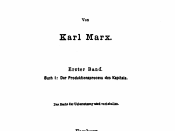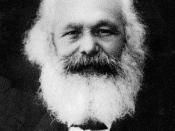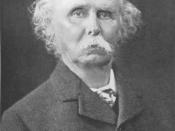Joseph Schumpeter was born in Czechoslovakia in the year 1883, one of the most illustrious economists of the world and far ahead of his time. He is best known for his theory of ÃÂcreative destructionÃÂ and is credited to have understood the dynamics of the capitalist economic process far clearly than any economist even today.
Schumpeter is also known to have articulated valuable insights on theories of innovation, business cycles; economic indicators such as savings, income distribution, employment, monopoly and the effect of politics on the economy. He prompted a strictly theoretical approach in economics and discussed dynamics and staticÃÂs at a base level .
He is said to have an ambivalent personality and went through failure as a minister of finance, a banker before embarking on the train of recognition at Harvard. He has 21 books and pamphlets, 127 articles and numerous other works to his name the most renowned book being ÃÂCapitalism, Socialism and DemocracyÃÂ, which was published just 8 years before he died in 1950.
ÃÂCan capitalism survive? No, I do not think it canÃÂ was the opening prologue to a section in the book. Schumpeter believed that capitalism would be destroyed by its success unlike Karl Marx who believed that it would be destroyed by the proletariat. Schumpeter believed that capitalism would destroy itself by attacking the very foundations that it was built upon like the system of private property and individual freedom. In a contribution to Encyclopedia Britannica, he stated that capitalism took place when leadership was handed over to a team of managers with abundant capital resources and division of labor.
Schumpeter is attributed to have defined entrepreneurship, its concepts and differentiated between invention and innovation. He is said to have believed that innovation takes as much research and trial error as inventions.
Schumpeter is said to have looked way beyond the theories of perfect competition. He said that maximum economic well being comes from new products, technology etc, which challenge and revolutionize the marketplace and force the other players to ÃÂmeet upÃÂ. His magnum opus s published posthumously was entitled ÃÂHistory of Economic AnalysisÃÂ and is known to alluded to Adam Smith the father of economics as unoriginal, Alfred Marshall yet another economist as a confused man.
Schumpeter is said to be have based a major portion of his works on economic history and the book ÃÂHistory of Economic ThoughÃÂ. He believed in theory and is best known for presenting ideas and notions with facts and information. He defined the term vision as an ideology that differs from person to person. However Schumpeter was not an idle theorist who wrote for the reading of his fellow economists but one who gave great insight to the common mans world.
Schumpeter is perhaps the most apt person to summarize his autobiography, he said of his contribution ÃÂEarly in my life I formed an idea of a rich life to include economics, politics, science and art, and love. All my failures are due to my observance of this program and my success to neglect of itÃÂ.
References1.Colander, David (2000). Complexity and the History of Economic Thought (Perspectives on the History of Economic Thought). Routledge, NY, USA.
2.Heilbroner, Robert L. The Worldyly Philosophers. 7th Edition.
3.Landreth and Colander. History of Economic Thought. 4th Edition.
4.Moss, Lawrence (1996). Joseph A. SchumpeterHistorian of Economic Thought: Perspectives on the History of Economic Thought. Routledge, New York, USA.
5.Samuels, W.J. (2003). Histories of Economic Thought (Research in the History of Economic Thought and Methodology). Elsevier Science Ltd, UK.



Good
a good unplagiarise essay with brief biography
1 out of 1 people found this comment useful.